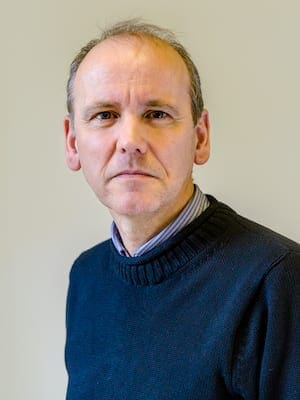A hard-hitting report on the effects of climate change from Christian Aid warns that poor people will continue to suffer disproportionately from its effects, and that progress on development could be nullified or even reversed unless action is taken.
The Climate of Poverty: Facts, Fears and Hope, published May 6, says that as many as 185 million people in sub-Saharan Africa alone “could die of disease directly attributable to climate change by the end of the century.”
However, it says, it is possible to manage the crisis in a way which may even have positive results. If developing countries could be encouraged, with Western help, to invest in renewable energy–particularly solar power–they would be enabled to reduce their dependence on expensive and ever-decreasing supplies of oil, and poor communities would be able to climb out of poverty and reach the Millennium Development Goals.
The Climate of Poverty outlines the effects of climate change on developing countries such as Haiti, where hurricanes and tropical storms have intensified and contributed to environmental degradation.
Disease, it says, is also a factor; the warming of cooler regions in Africa, for instance, has led to the spread of malaria, dengue fever and cholera. Drought affecting already marginal land, for instance in the Sahel, will put the lives of large numbers of poor people at risk. Warfare, too, is an inevitable consequence of the scarcity of resources.
The report calls for the World Bank and other funders to direct more investment towards renewable energy sources such as solar power and biofuels, and argues that these could provide sufficient power not just for small-scale and domestic use, but for large industrial plants. Rich countries should make ‘immediate and dramatic’ cuts to greenhouse gas emissions.
The “Renewable Age,” it argues, could signal new opportunities for sustainable development.
“If the relentless quest for polluting growth can be stemmed; if carbon emissions can be cut; if new approaches to development can be found for billions of the world’s poor people–then the climate change crisis might actually be the genesis of something truly positive instead of being part of a terminal global decline.”
Andrew Pendleton, Christian Aid’s environment and development manager and one of the report’s authors, said, “The central message is that poor people are vulnerable and will suffer first from climate change, but we all will, and it’s in all our interests to do something.”
He stressed the importance of small-scale renewable energy projects. :We do see the advantage of renewables for poor communities,” he said. “We are experts in poverty and in the sustainability of rural communities; no large-scale project is going to solve their problems any time soon.”
To the charge leveled against Christian Aid and other development charities by free-market campaigners that they were opposed to economic growth, he said: “We take the economic arguments seriously. We are not anti-capitalist or anti-trade, but a lot of poor countries just aren’t there yet. An ideological belief in growth for its own sake is not enough; there has to be growth in the right sectors.
“We are not saying that trade is bad, or that freeing up the market is bad–but if it’s done in the wrong way, at the wrong time, it can hurt people. That is to misunderstand the profound nature of the harm it can do in rural communities. If people lose their income, they don’t send their children to school, and we have another generation of poor on our hands. Ideology is not worth it.”
Alex Singleton of the free-market Globalisation Institute said that growing economies inevitably polluted the environment, and warned against efforts to restrain growth on environmental grounds.
“Poor people suffer from environmental destruction, while the rich don’t because they can defend themselves,” he said. “So if you kick-start the growth, they will be able to protect themselves against environmental problems.”
Technological advances, he said, would mean that environmental problems associated with growth would be solved within a few decades.
Mark Woods is editor of The Baptist Times, newspaper of the Baptist Union of Great Britain. This story appeared in the paper’s May 18 print edition.

